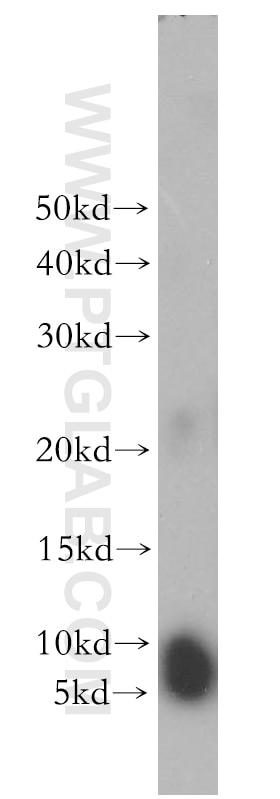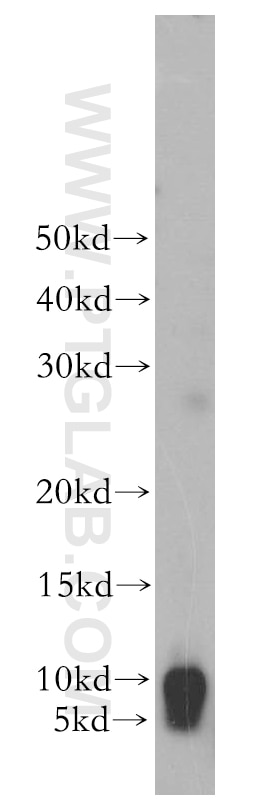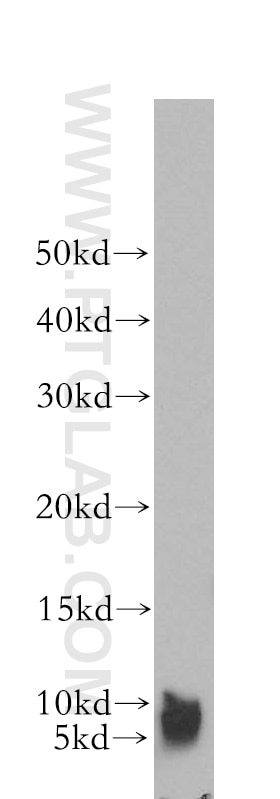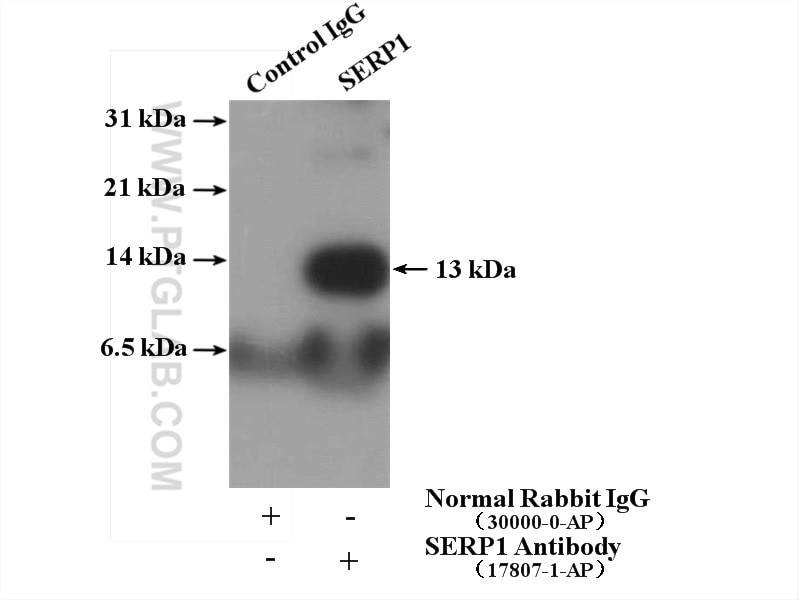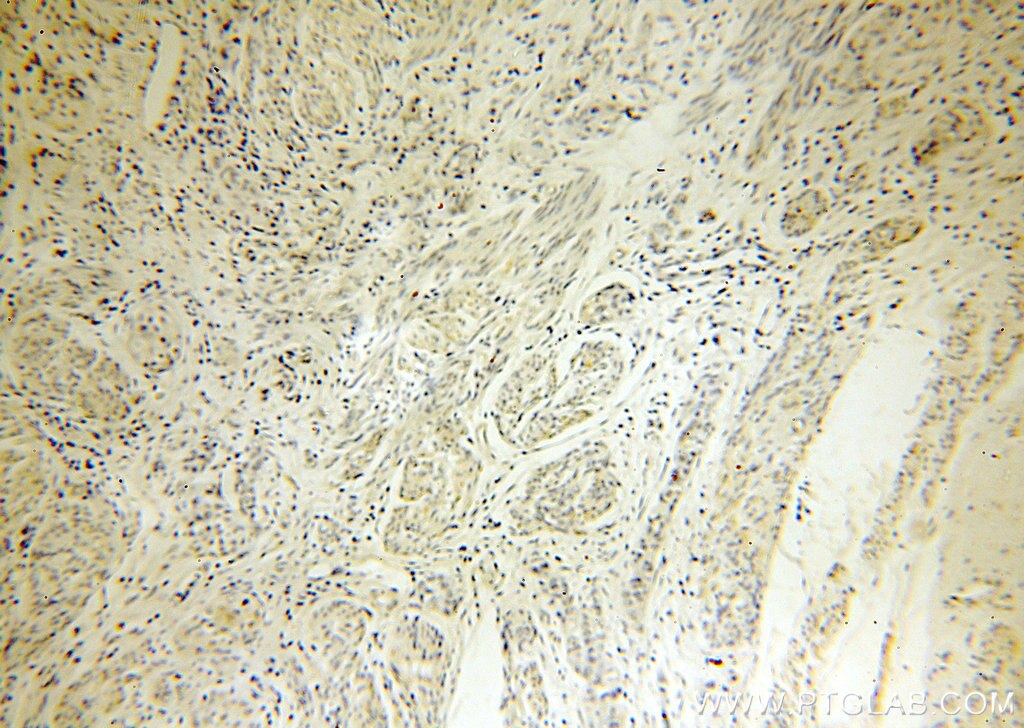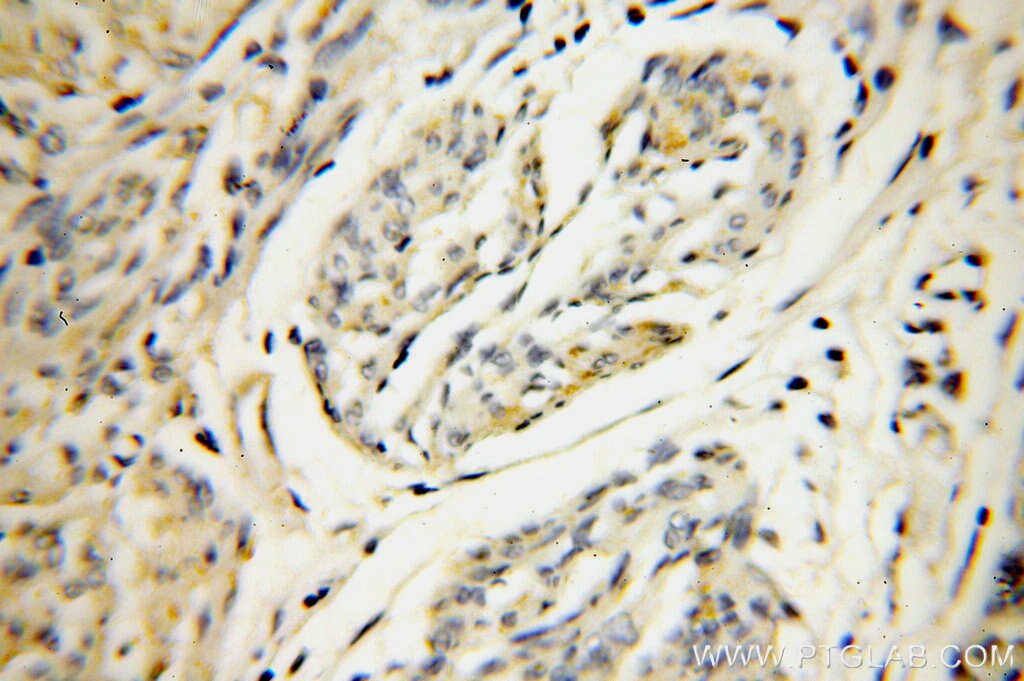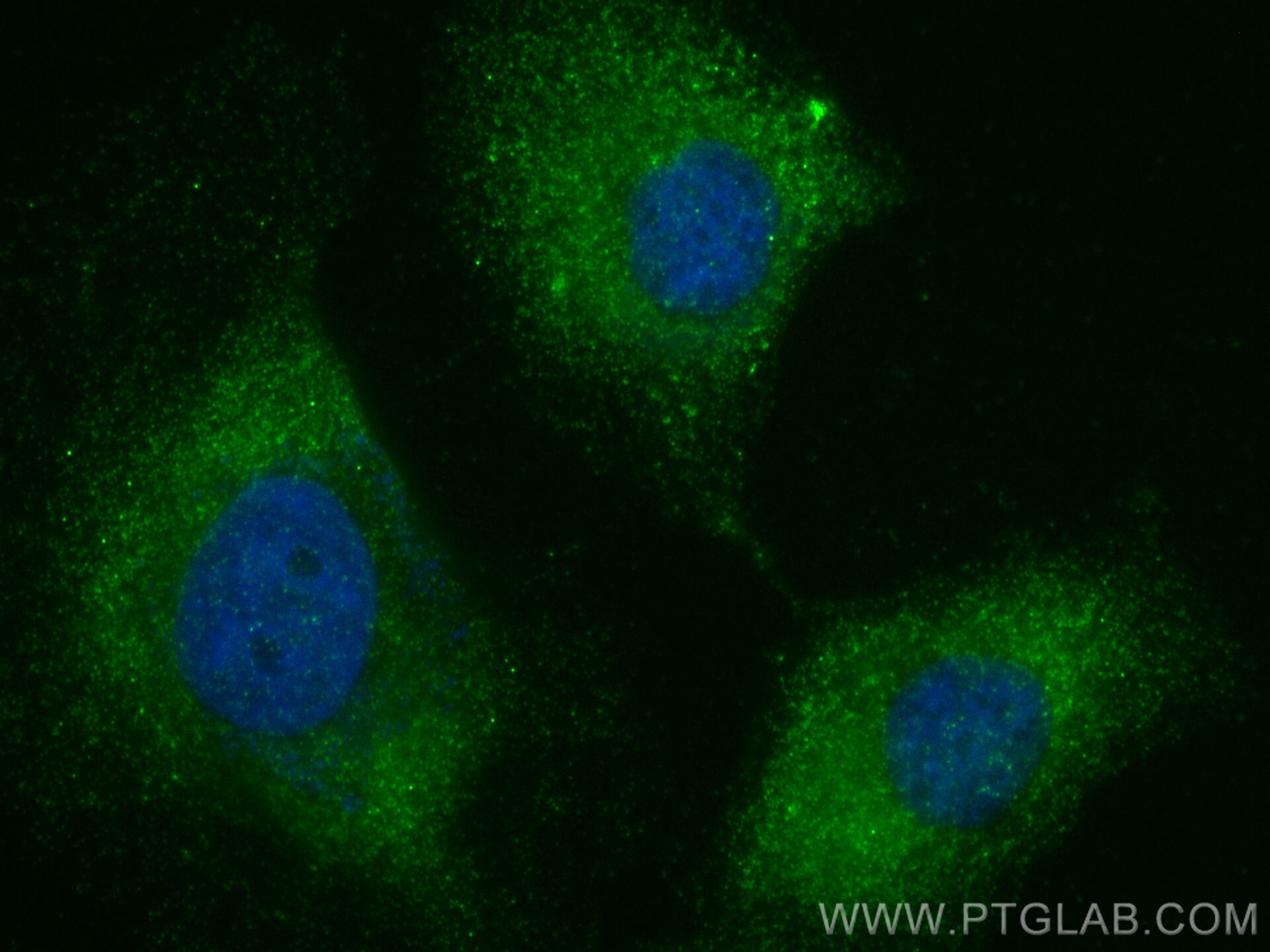Anticorps Polyclonal de lapin anti-SERP1
SERP1 Polyclonal Antibody for WB, IHC, IF/ICC, IP, ELISA
Hôte / Isotype
Lapin / IgG
Réactivité testée
Humain, rat, souris
Applications
WB, IHC, IF/ICC, IP, ELISA
Conjugaison
Non conjugué
N° de cat : 17807-1-AP
Synonymes
Galerie de données de validation
Applications testées
| Résultats positifs en WB | tissu cérébral de souris, cellules HeLa, tissu pancréatique de souris |
| Résultats positifs en IP | tissu cérébral de souris, |
| Résultats positifs en IHC | tissu de cancer de l'endomètre humain il est suggéré de démasquer l'antigène avec un tampon de TE buffer pH 9.0; (*) À défaut, 'le démasquage de l'antigène peut être 'effectué avec un tampon citrate pH 6,0. |
| Résultats positifs en IF/ICC | cellules HeLa, |
Dilution recommandée
| Application | Dilution |
|---|---|
| Western Blot (WB) | WB : 1:500-1:2000 |
| Immunoprécipitation (IP) | IP : 0.5-4.0 ug for 1.0-3.0 mg of total protein lysate |
| Immunohistochimie (IHC) | IHC : 1:20-1:200 |
| Immunofluorescence (IF)/ICC | IF/ICC : 1:50-1:500 |
| It is recommended that this reagent should be titrated in each testing system to obtain optimal results. | |
| Sample-dependent, check data in validation data gallery | |
Applications publiées
| WB | See 2 publications below |
| IHC | See 2 publications below |
| IF | See 1 publications below |
Informations sur le produit
17807-1-AP cible SERP1 dans les applications de WB, IHC, IF/ICC, IP, ELISA et montre une réactivité avec des échantillons Humain, rat, souris
| Réactivité | Humain, rat, souris |
| Réactivité citée | rat, Humain |
| Hôte / Isotype | Lapin / IgG |
| Clonalité | Polyclonal |
| Type | Anticorps |
| Immunogène | SERP1 Protéine recombinante Ag12087 |
| Nom complet | stress-associated endoplasmic reticulum protein 1 |
| Masse moléculaire calculée | 66 aa, 7 kDa |
| Poids moléculaire observé | 10 kDa |
| Numéro d’acquisition GenBank | BC108314 |
| Symbole du gène | SERP1 |
| Identification du gène (NCBI) | 27230 |
| Conjugaison | Non conjugué |
| Forme | Liquide |
| Méthode de purification | Purification par affinité contre l'antigène |
| Tampon de stockage | PBS with 0.02% sodium azide and 50% glycerol |
| Conditions de stockage | Stocker à -20°C. Stable pendant un an après l'expédition. L'aliquotage n'est pas nécessaire pour le stockage à -20oC Les 20ul contiennent 0,1% de BSA. |
Informations générales
Stress-associated endoplasmic reticulum (ER) protein 1 (SERP1), also known as ribosome- associated membrane protein 4 (RAMP4), is a Sec61-associated polypeptide that is induced by ER stress [PMID:16705175]. SERP1 interacts with target proteins during their translocation into the lumen of the endoplasmic reticulum. It controls glycosylation of major histocompatibility complex class II-associated invariant chains by a translocational pausing mechanism, and its overexpression stabilizes newly synthesized membrane proteins under ER stress by associating with the Sec61 complex [PMID:10601334]. It is suggested SERP1 is involved in the biosynthesis/processing of secretory proteins
Protocole
| Product Specific Protocols | |
|---|---|
| WB protocol for SERP1 antibody 17807-1-AP | Download protocol |
| IHC protocol for SERP1 antibody 17807-1-AP | Download protocol |
| IF protocol for SERP1 antibody 17807-1-AP | Download protocol |
| IP protocol for SERP1 antibody 17807-1-AP | Download protocol |
| Standard Protocols | |
|---|---|
| Click here to view our Standard Protocols |
Publications
| Species | Application | Title |
|---|---|---|
Viruses A Dengue Virus Type 2 (DENV-2) NS4B-Interacting Host Factor, SERP1, Reduces DENV-2 Production by Suppressing Viral RNA Replication. | ||
Am J Transl Res ER stress-related mRNA-lncRNA co-expression gene signature predicts the prognosis and immune implications of esophageal cancer | ||
Cell Rep Coronavirus subverts ER-phagy by hijacking FAM134B and ATL3 into p62 condensates to facilitate viral replication | ||
Cancer Med Predicting Outcomes in Esophageal Squamous Cell Carcinoma Using scRNA-Seq and Bulk RNA-Seq: A Model Development and Validation Study | ||
Cell Biol Int SERP1 Alleviates Cerebral Ischemia/Reperfusion Injury by Inhibiting ER Stress-Mediated Apoptosis |
